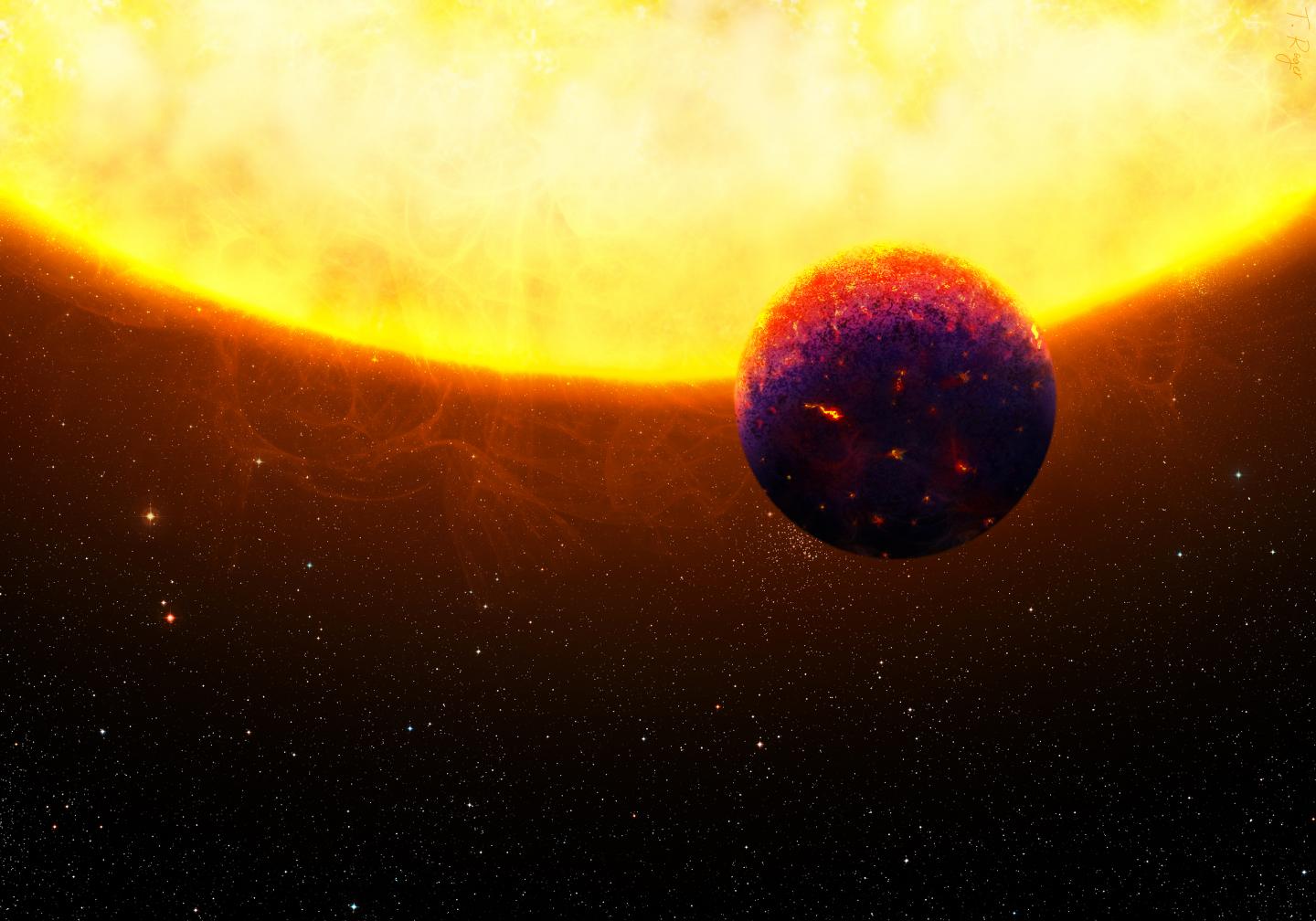A sapphire- or ruby-like planet?
55 Cancri e, HD219134 b, and WASP-47 e are three rocky planets – and they have something else in common: they might belong to a new class of super-Earths, according to arguments laid out by scientists from the University of Zurich and the University of Cambridge in a new paper. The astronomers looked at how planets are formed in protoplanetary disks. If they are formed, like the Earth, at a reasonable distance from their central star, then heavy elements, such as iron, magnesium, and silicon, condense.
If, however, the protoplanet has an orbit that is very close to its host star (HD219134 b, for example, needs only three days to complete one revolution), then the protoplanetary disk is much hotter there. Iron or silicon would remain in a gaseous state, while lighter elements, such as calcium or aluminum, would condense. Therefore, such planets might not have an iron core and thus might also not form a magnetic field.
Because they would have a completely different structure, this might also affect their cooling behavior and their atmosphere. The planets would have a ten to twenty percent lower density than that of the Earth. Seen from afar, they might shimmer like a ruby or sapphire – chemically, these gemstones are aluminum oxide.
Whether this new class of super-Earths actually exists has not yet been proven. 55 Cancri e, HD219134 b, and WASP-47 e, however, are interesting candidates of possible proof for this new class, because these planets have the properties determined by the scientists, among these the lower density that cannot be explained in some other way. Especially with 55 Cancri e (also known as Janssen), it was long assumed that this planet might be composed of carbon, possibly even in the form of diamond. That no longer fits the current results – but a sapphire planet would still be something special.
